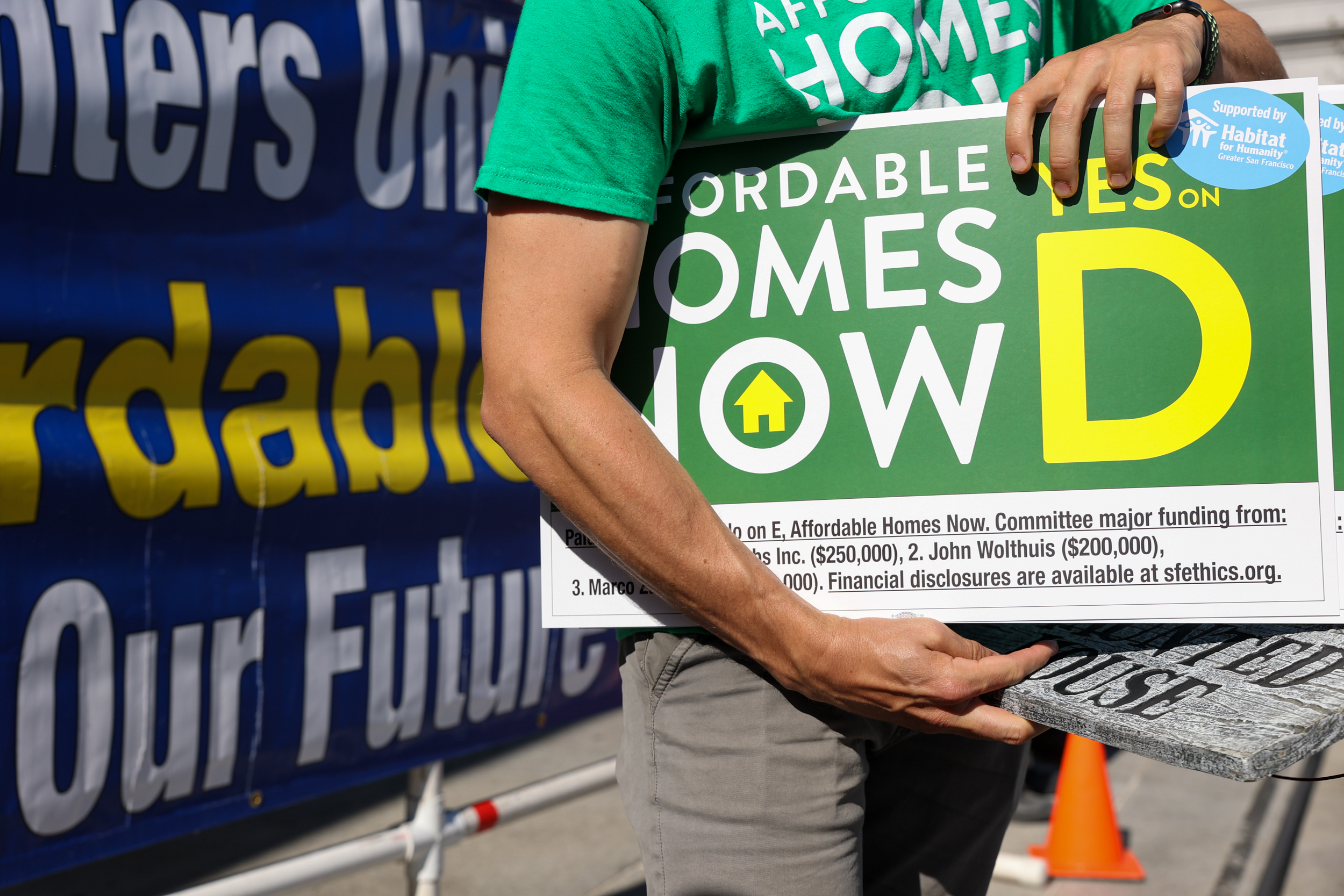Based on early returns from Election Day, San Francisco voters are split on a housing measure that would streamline approvals for new affordable apartments in the city—along what looks mostly like east-to-west city lines.
But when analyzed next to the results for a second housing measure, a pattern begins to emerge showing the geographic breakdown of the city’s main housing factions.
Initial results have Proposition D, which was supported by Mayor London Breed and the political group YIMBY—short for “yes in my backyard”—losing by just 1,275 votes. Rival measure Prop. E was also losing last night, with just 45% of the vote.
As of the latest numbers from Tuesday, nearly 10,000 San Franciscans sent in a ballot but didn’t vote either way on Prop. D—a margin well over the amount the campaign would have needed to win. And 104,000 ballots remain to be counted, so there’s still plenty of room for a potential flip.
The results so far mirror poll data on San Franciscans’ attitudes towards new housing: Though voters are split on what new housing they’d like to see build, a plurality favors building housing at all income levels.
So far, for the most part, San Francisco’s west side residents in the Sunset and Richmond voted no on Prop. D, while most of the east side voted yes—with the exception of several neighborhoods in the southeastern part of the city. But many west siders also voted no on Prop. E, indicating they weren’t interested in any solution to streamlining the construction of new affordable apartments.
Meanwhile, a strong faction of voters in the Marina, SoMa, Noe Valley and the Tenderloin voted yes on both measures, meaning they may be happy with any approach to streamlining the creation of affordable apartments and may consider themselves YIMBYs.
Primarily in the Mission and Bernal Heights is a third group, which may represent the city’s more progressive voters. They largely voted to approve Prop. E, which was put forth by the progressive faction of the Board of Supervisors and to reject Prop. D.
